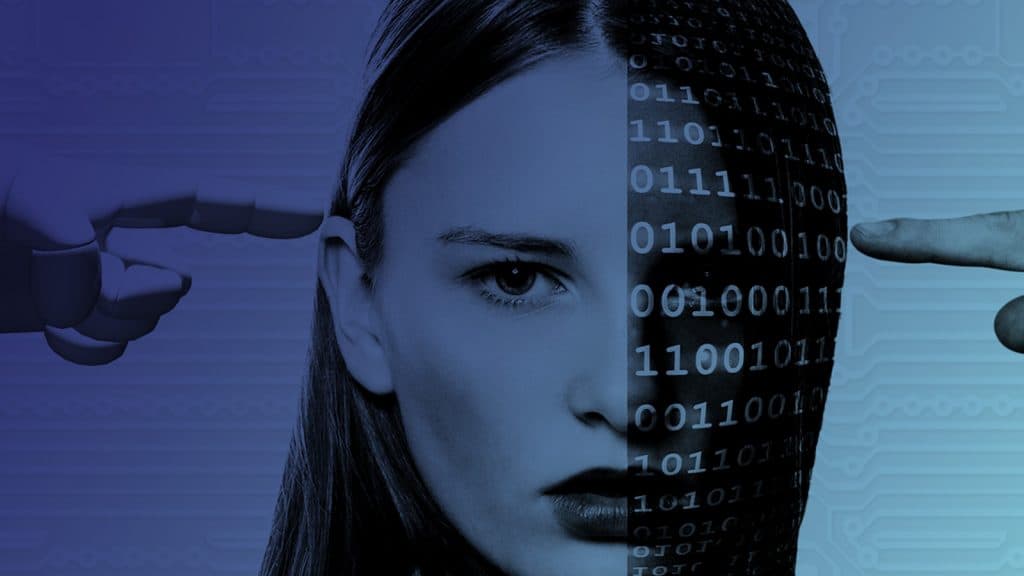Source – https://www.analyticsinsight.net/
People are paranoid about Artificial Intelligence becoming self-conscious and posing a threat to humankind, but will it happen soon?
The Internet has been replete with news headlines about GPT-3 writing articles, Google’s Neural Network creating eerie artwork, artificial intelligence (AI) models creating music and what not. While these may seems quite intriguing for a tech enthusiast, for an average person, it may be overwhelming. Not only he shall be worried about ever-increasing capabilities of artificial intelligence, it also births fear to AI and robots dominating humans – as portrayed in dystopian movies. Hence, all these milestones achieved by AI begs the question – Will artificial intelligence be conscious someday?
Artificial intelligence tries to solve real-world problems by simulating human brain intelligence to perform the assigned task. Generally, it can be categorized into two distinct types: Weak AI and Strong AI. Weak AI (or Artificial Narrow Intelligence) is designed to solve only a particularly specified problem, like recognizing text in a photo or processing data. In contrast, Strong AI (or Artificial General Intelligence), is a cohort of artificial intelligence algorithms powered with intelligence and self-awareness. This form of artificial intelligence has the capacity to understand or learn any intellectual task that a human being can. Currently, AI purists are convinced that the endgame of Strong AI is self-conscious.
Typically the artificial intelligence models and algorithms which are characterized by repetitive learning and limited memory belong to weak AI. Even the most complex applications of AI that leverages machine learning and deep learning to teach itself falls under this category. So, the news we often come across about the latest artificial intelligence innovations also belong to weak AI.
However, here’s the thing, while building 100% conscious artificial intelligence may prove to be a deadly gamble, experts have voiced different opinions on the same. Some argue that scientists need to have an entirely new calculus to create totally conscious artificial intelligence, as till now we have been building AI models that are good at ‘memorizing’ instead of thinking rationally like us. Whereas some say that either conscious artificial intelligence is probable in next few decades or totally impossible. Nevertheless, one thing is certain that currently we lack in understanding how to truly define a self-conscious artificial intelligence system.
Enigma developer, Alan Turing, was one of the first person who raised question on will artificial intelligence be ever conscious. He had created a test in which a person talks to a robot without being told it’s a robot. In case, the person cannot discern after the conversation, the robot has passed the test. Unfortunately, this test is also full of loopholes. Meanwhile, consciousness is not a measurable phenomenon. Even if we perfectly crack the black box problem of artificial intelligence, we are far from understanding how to quantify and calibrate ‘self-consciousness’. Also, it is not necessary that computational capabilities and consciousness will go in hand in hand.
Currently, consciousness is limited to carbon substrates only or the ‘living beings’ – who themselves attained it through evolution. Simultaneously, scientists are wondering if silicon-based artificial intelligence, is even capable of consciousness. This is because lack of carbon substrates need not imply lack of consciousness. To illustrate this, let’s consider the following argument:
- Human can breathe using their lungs
- Fish don’t have lungs
Therefore, fish don’t breathe!
In reality, we know that while fish may not have lungs, they do breathe using ‘gills’. Hence, consciousness in artificial intelligence is still an open but vague question. And since, conscious is not a subjective quality for AI, the definition will remain ambiguous.
At the same time, experts believe that consciousness will enable artificial intelligence to accept new information, store and retrieve old information and carry cognitive processing of it all into perceptions and actions. Yet we cannot ignore the possibilities of misjudgment and bias due to conscious thinking.
Most of the artificial intelligence models of today, function after being trained by continuous loop of data feed, where it learns by following same set of commands (similar to rote learning by humans). Though if presented with new situations and simulations they will fail. For instance, if self-driving cars are trialed in India, we will hear more of ‘accidents’ due to these autonomous vehicles. So, first we must focus on enabling AI perceive how to take cognitive decisions, then we can move ahead with conscious artificial intelligence.
